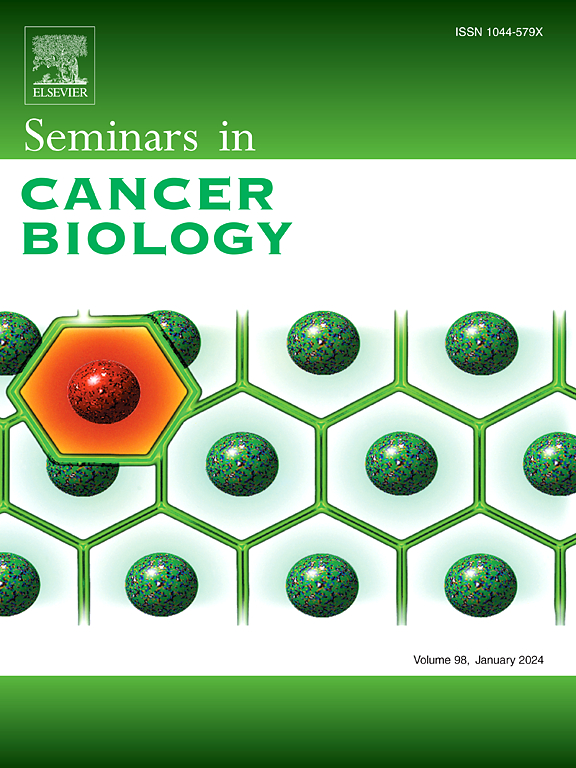Decoding T cell senescence in cancer: Is revisiting required?
IF 12.1
1区 医学
Q1 ONCOLOGY
引用次数: 0
Abstract
Senescence is an inherent cellular mechanism triggered as a response to stressful insults. It associates with several aspects of cancer progression and therapy. Senescent cells constitute a highly heterogeneous cellular population and their identification can be very challenging. In fact, the term “senescence” has been often misused. This is also true in the case of immune cells. While several studies indicate the presence of senescent-like features (mainly in T cells), senescent immune cells are poorly described. Under this prism, we herein review the current literature on what has been characterized as T cell senescence and provide insights on how to accurately discriminate senescent cells against exhausted or anergic ones. We also summarize the major metabolic and epigenetic modifications associated with T cell senescence and underline the role of senescent T cells in the tumor microenvironment (TME). Moreover, we discuss how these cells associate with standard clinical therapeutic interventions and how they impact their efficacy. Finally, we underline the importance of precise identification and thorough characterization of “truly” senescent T cells in order to design successful therapeutic manipulations that would delay cancer incidence and maximize efficacy of immunotherapy.
解码癌症中的T细胞衰老:需要重访吗?
衰老是一种固有的细胞机制,是对应激性侮辱的反应。它与癌症进展和治疗的几个方面有关。衰老细胞构成了一个高度异质性的细胞群,它们的鉴定是非常具有挑战性的。事实上,“衰老”这个词经常被误用。免疫细胞也是如此。虽然一些研究表明存在类似衰老的特征(主要在T细胞中),但对衰老免疫细胞的描述很少。在这个棱镜下,我们在此回顾了目前关于什么被描述为T细胞衰老的文献,并提供了如何准确区分衰老细胞与耗尽或无能细胞的见解。我们还总结了与T细胞衰老相关的主要代谢和表观遗传修饰,并强调了衰老T细胞在肿瘤微环境(TME)中的作用。此外,我们讨论了这些细胞如何与标准的临床治疗干预相关联,以及它们如何影响其疗效。最后,我们强调了精确识别和彻底表征“真正”衰老T细胞的重要性,以便设计成功的治疗操作,从而延迟癌症发病率并最大化免疫治疗的疗效。
本文章由计算机程序翻译,如有差异,请以英文原文为准。
求助全文
约1分钟内获得全文
求助全文
来源期刊

Seminars in cancer biology
医学-肿瘤学
CiteScore
26.80
自引率
4.10%
发文量
347
审稿时长
15.1 weeks
期刊介绍:
Seminars in Cancer Biology (YSCBI) is a specialized review journal that focuses on the field of molecular oncology. Its primary objective is to keep scientists up-to-date with the latest developments in this field.
The journal adopts a thematic approach, dedicating each issue to an important topic of interest to cancer biologists. These topics cover a range of research areas, including the underlying genetic and molecular causes of cellular transformation and cancer, as well as the molecular basis of potential therapies.
To ensure the highest quality and expertise, every issue is supervised by a guest editor or editors who are internationally recognized experts in the respective field. Each issue features approximately eight to twelve authoritative invited reviews that cover various aspects of the chosen subject area.
The ultimate goal of each issue of YSCBI is to offer a cohesive, easily comprehensible, and engaging overview of the selected topic. The journal strives to provide scientists with a coordinated and lively examination of the latest developments in the field of molecular oncology.
 求助内容:
求助内容: 应助结果提醒方式:
应助结果提醒方式:


